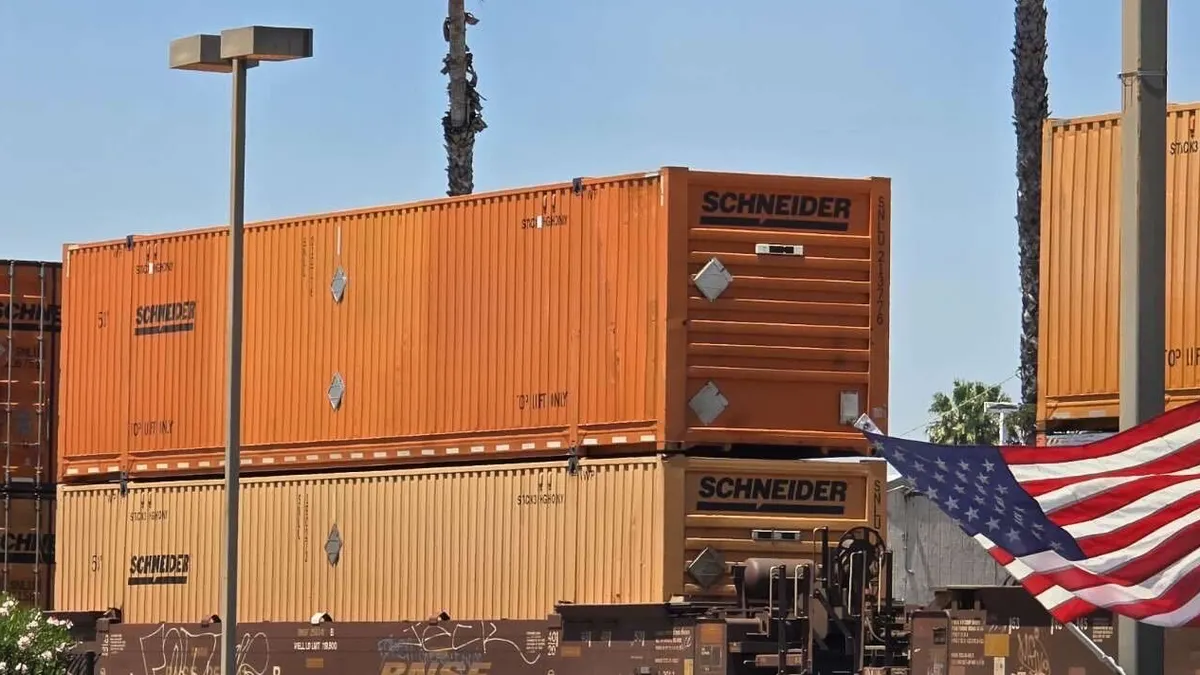Dive Brief:
- Schneider National has already placed peak season surcharges for its intermodal business with most of its large customers, Jim Filter, EVP and group president of transportation and logistics, said in an Q2 earnings call Thursday.
- The carrier’s surcharges were executed about six to eight weeks ahead of when it normally does, and the company said it’s beginning similar conversations with its truckload customers.
- President and CEO Mark Rourke said it’s difficult to quantify the “pull forwards” of what happened in Q2, but there’s evidence of certain customers doing so. Schneider’s intermodal business saw revenues, excluding fuel surcharge, increase 5% year over year driven by volume growth of 5%, according to an earnings presentation.
Dive Insight:
Schneider National is seeing a wide range of behaviors of customers in terms of how peak season is developing. But all-in-all, peak season trends are being driven by demand, Filter said in the call.
Shippers are reacting to ongoing global trade complexities as tariff policies continue to develop over time. As a result, some carriers are reacting to an uptick in demand driven from frontloading efforts from customers that seek to mitigate potential tariff-related challenges.
J.B. Hunt Transport Services, for example, also began its peak season surcharges earlier this year as it anticipates continued volatility and increasing demand from its customers.
Schneider, similar to J.B. Hunt, is getting ahead through surcharges to manage costs.
“[C]ustomers are starting to surge up, and we're seeing some of that surge right now and our intent there is really to be able to manage our our operations, so that we're putting costs where incremental cost is being incurred,” Filter said. The carrier also wants to make sure that “one or a small number of customers don't completely disrupt its network,” he added.
An earlier peak season though could present challenges to carriers, according to DAT Freight & Analytics.
Shippers have been bringing imports earlier, since last September, at a fairly high and elevated volumes, Dean Croke, DAT iQ principal analyst, told Trucking Dive in an interview in June. “That means the rest of the year is expected to be flat in terms of volumes,” he added.













